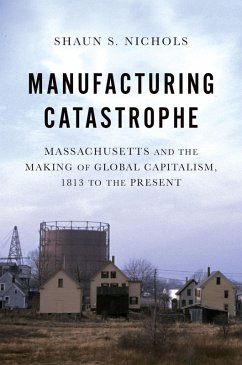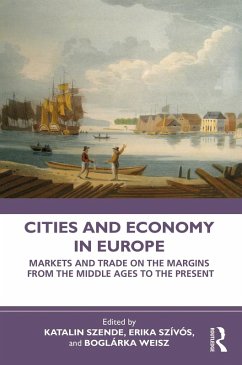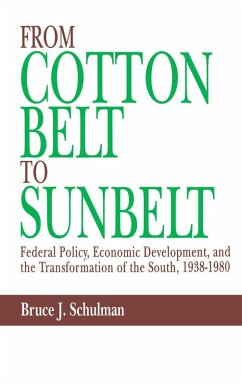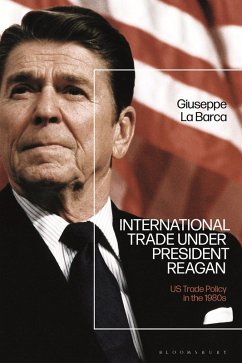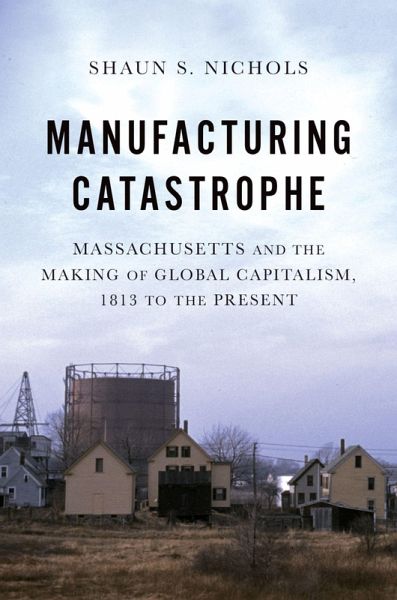
Manufacturing Catastrophe (eBook, PDF)
Massachusetts and the Making of Global Capitalism, 1813 to the Present
Versandkostenfrei!
Sofort per Download lieferbar
14,95 €
inkl. MwSt.
Weitere Ausgaben:

PAYBACK Punkte
7 °P sammeln!
American economic history has traditionally been told as a narrative of industrialization and affluence collapsing into globalization and industrial decay. Offering a reappraisal of this pattern, Manufacturing Catastrophe traces the successive rise and fall of the whaling, textile, garment, electronics, and high-tech industries in Massachusetts over the past two hundred years. It shows how business, labor, and political leaders repeatedly mobilized the lure of crisischeap labor, low taxes, and generous manufacturing subsidiesto pull and push both capital and workers across the continents, repe...
American economic history has traditionally been told as a narrative of industrialization and affluence collapsing into globalization and industrial decay. Offering a reappraisal of this pattern, Manufacturing Catastrophe traces the successive rise and fall of the whaling, textile, garment, electronics, and high-tech industries in Massachusetts over the past two hundred years. It shows how business, labor, and political leaders repeatedly mobilized the lure of crisischeap labor, low taxes, and generous manufacturing subsidiesto pull and push both capital and workers across the continents, repeatedly remaking the pioneering industrial cities of Fall River and New Bedford. Workersranging from migrating Azorean seamen to British weavers to Quebecois farmersand capitalistsincluding mobile manufacturers, globetrotting whalers, and multinational conglomeratorsparticipated in the creation of regional growth and, with it, American industrial ascendance. Exploring the paradoxical and recurring coexistence of high unemployment and labor shortages in these cities, this book explains why recovery and growth have not necessarily translated into long-term prosperity. In doing so, it illuminates how economic catastrophe was, ironically, a critical ingredient in the making of America's industrial hegemony.
Dieser Download kann aus rechtlichen Gründen nur mit Rechnungsadresse in A, B, BG, CY, CZ, D, DK, EW, E, FIN, F, GR, HR, H, IRL, I, LT, L, LR, M, NL, PL, P, R, S, SLO, SK ausgeliefert werden.




